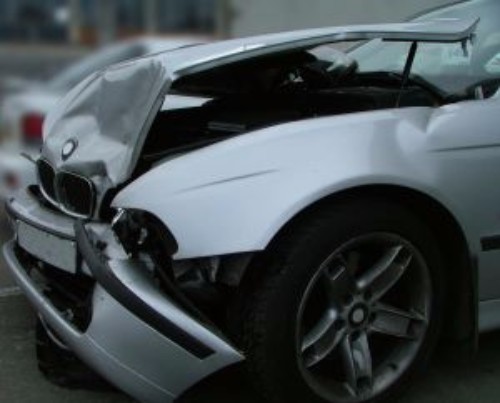Car accidents are traumatic events that can have a profound impact on the lives of those involved. Among the various injuries that can result from a car accident, whiplash is one of the most commonly misunderstood and misrepresented. Whiplash occurs when the neck is suddenly jerked back and forth, causing strain and damage to the soft tissues in the neck. While whiplash is a legitimate and often painful injury, there are numerous myths and misconceptions surrounding it, especially in the context of car accident cases in Long Cane.
At Princenthal, May & Wilson, LLC, we believe that it’s essential for individuals to have accurate information about whiplash when pursuing personal injury claims. In this article, we will debunk some of the most common myths surrounding whiplash in car accident cases and shed light on the requirements involved in seeking compensation for this type of injury.
Myth #1: Whiplash Is Not a Real Injury
One of the most persistent myths about whiplash is that it’s not a genuine injury. Some people believe that individuals who claim to have whiplash are exaggerating their symptoms or trying to scam insurance companies. This misconception couldn’t be further from the truth. Whiplash is a real and painful injury that can have long-lasting effects on a person’s health and well-being.
The truth is that when a vehicle suddenly stops or changes direction, the force of the impact can cause the neck to whip back and forth violently. This rapid movement can lead to the stretching and tearing of ligaments and muscles in the neck, resulting in whiplash. It is a legitimate medical condition that requires proper diagnosis and treatment.
Myth #2: You’ll Feel Whiplash Pain Immediately
Another common myth is that if you’ve been in a car accident and don’t experience neck pain right away, you couldn’t have sustained whiplash. In reality, the symptoms of whiplash may not become apparent immediately after an accident. It can take hours or even days for pain and stiffness to develop fully. This delay in symptom onset can be attributed to the body’s adrenaline response during the accident, which can mask pain temporarily.
To protect your health and legal rights, it’s essential to seek medical attention promptly after any car accident, even if you initially feel fine. A medical professional can evaluate your condition and identify any injuries, including whiplash, that may not be immediately apparent.
Myth #3: Minor Car Accidents Can’t Cause Whiplash
Some people believe that whiplash only occurs in high-speed or severe car accidents. This is a dangerous misconception, as whiplash can result from even low-impact collisions. In fact, many whiplash injuries occur in accidents where the vehicles were traveling at relatively low speeds.
The key factor in whiplash is the sudden deceleration or change in direction, which can happen in various types of accidents. Even a minor rear-end collision can generate enough force to cause whiplash, depending on the circumstances. Therefore, it’s crucial not to dismiss the possibility of whiplash simply because the accident appeared minor.
Myth #4: Whiplash Will Heal on Its Own
Another common myth is that whiplash is a self-limiting injury that will resolve itself with time. While some mild cases of whiplash may improve without extensive medical intervention, many individuals with whiplash require medical treatment to manage their symptoms and prevent long-term complications.
Whiplash can lead to chronic neck pain, headaches, and other debilitating symptoms if left untreated. Seeking prompt medical attention and following a recommended treatment plan can significantly improve the chances of a full recovery.
Requirements for Pursuing a Whiplash Claim in Long Cane
Now that we’ve debunked some of the common myths about whiplash, let’s explore the requirements for pursuing a whiplash claim in Long Cane, South Carolina:
- Medical Documentation: To file a successful whiplash claim, you must have proper medical documentation that establishes the extent of your injuries. This documentation should include medical records, diagnostic tests, and treatment plans from healthcare providers who have evaluated and treated your whiplash.
- Evidence of Liability: You’ll need to demonstrate that another party’s negligence or wrongdoing was responsible for the car accident that caused your whiplash. This may involve gathering evidence such as witness statements, accident reports, and photographs from the scene.
- Timely Filing: In South Carolina, there is a statute of limitations that dictates how long you have to file a personal injury claim, including whiplash cases. It’s crucial to file your claim within this timeframe, which is typically three years from the date of the accident.
- Insurance Claims: Dealing with insurance companies can be complex. It’s essential to notify your insurance company promptly about the accident and consult with an attorney before providing statements or accepting any settlement offers. An attorney can help ensure that your rights and interests are protected during negotiations.
Dealing with Whiplash: Recovery and Coping
Now that we’ve established the facts about whiplash and the legal aspects of pursuing a claim, let’s delve into the practical side of dealing with this injury. Whiplash can be physically and emotionally challenging, but with the right approach, recovery is possible.
- Medical Treatment: If you’ve been diagnosed with whiplash, it’s crucial to follow your healthcare provider’s recommended treatment plan. This often includes rest, physical therapy, pain management, and sometimes the use of a neck brace. By adhering to your treatment plan, you give your body the best chance to heal properly.
- Physical Rehabilitation: Whiplash can lead to stiffness, reduced range of motion, and muscle weakness. Physical therapy can be highly beneficial in helping you regain strength and mobility in your neck and upper back. Be patient with your rehabilitation process, as progress may be gradual.
- Pain Management: Whiplash can cause significant pain, which may require pain management strategies. Your healthcare provider can recommend appropriate medications or therapies to help alleviate discomfort. It’s essential to communicate openly with your healthcare team about your pain levels to ensure you receive adequate relief.
- Rest and Self-Care: Adequate rest is essential for healing from whiplash. Avoiding activities that strain your neck and practicing good posture can aid in recovery. Additionally, applying ice and heat as directed by your healthcare provider can help reduce inflammation and soothe sore muscles.
- Emotional Well-Being: Dealing with a whiplash injury can take a toll on your emotional well-being. It’s not uncommon to experience feelings of frustration, anxiety, or depression as a result of the pain and limitations caused by the injury. Don’t hesitate to seek emotional support from friends, family, or a mental health professional if needed.
- Return to Normal Activities: Gradually reintegrate into your normal daily activities as your symptoms improve and with the guidance of your healthcare provider. Rushing back into strenuous activities too soon can hinder your recovery.
- Long-Term Effects: In some cases, whiplash can lead to chronic pain or ongoing issues. It’s essential to stay vigilant about your symptoms and communicate any concerns with your healthcare provider. Early intervention can help manage potential long-term effects.
Whiplash is a real and painful injury that can have a significant impact on your life after a car accident. It’s essential to dispel the myths and misconceptions surrounding whiplash, understand the nature of the injury, and know your rights if you’ve suffered from it due to another party’s negligence.
At Princenthal, May & Wilson, LLC, we are committed to helping individuals in Long Cane, South Carolina, navigate the legal complexities of whiplash claims and obtain the compensation they deserve. If you or a loved one has experienced whiplash in a car accident, don’t hesitate to reach out to our experienced personal injury attorneys for guidance and support.
Contact us today to schedule a free consultation and learn how we can help you pursue justice and fair compensation for your whiplash injury. Your well-being is our priority, and we’re here to assist you every step of the way.

